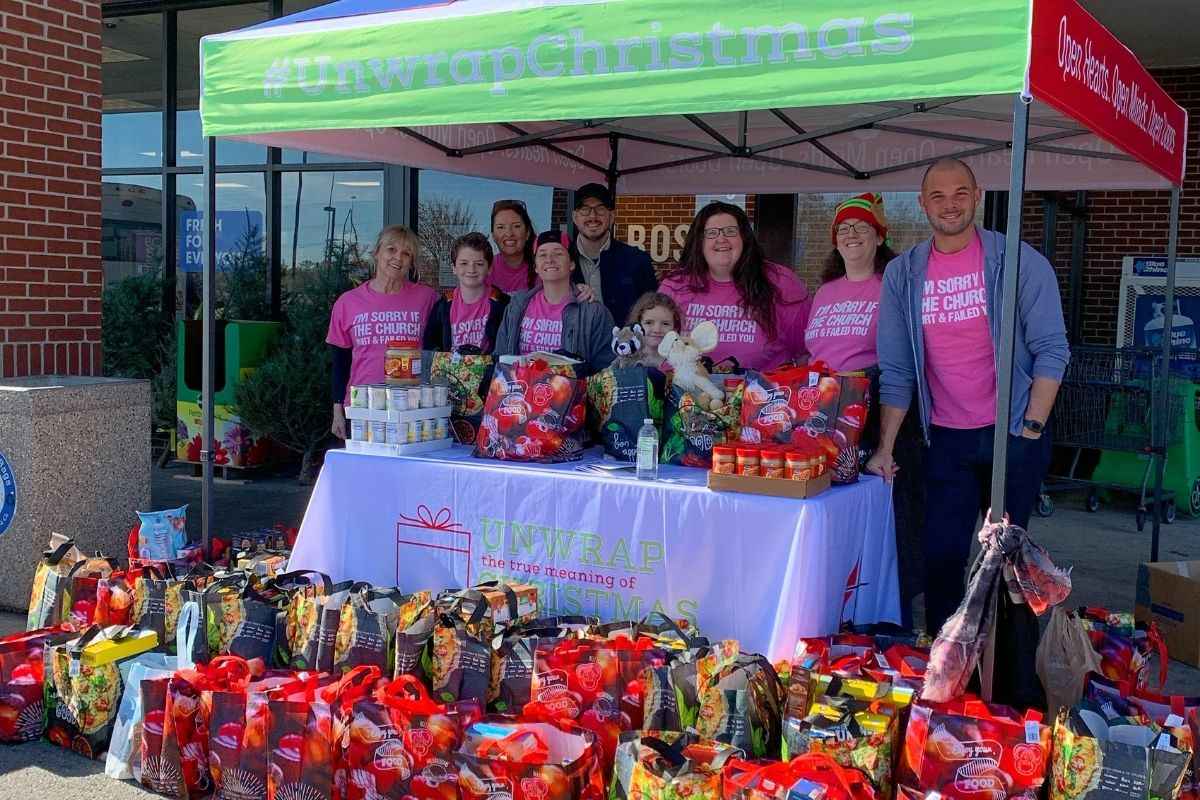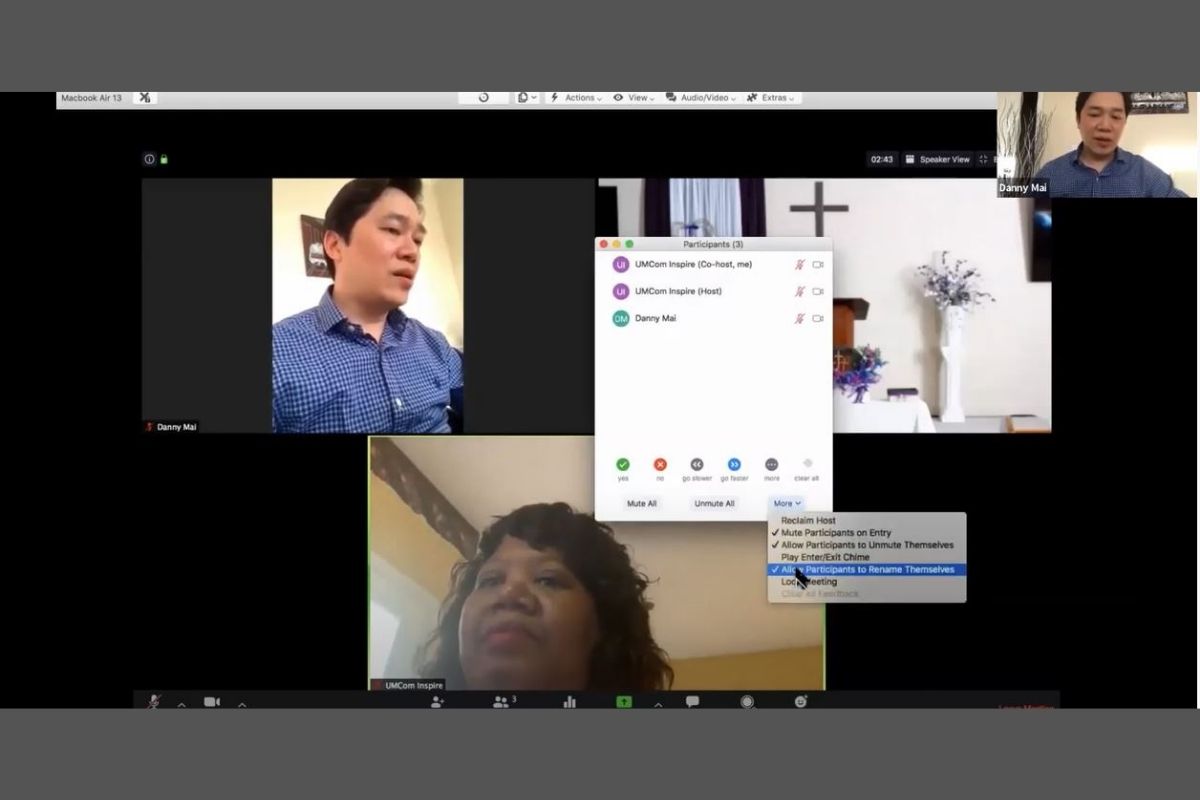Over United Methodist Communications' 80-year history, resourcing congregations for communications ministry has been an important aspect of the agency’s work.
Beginning in the late 1940s, workshops were conducted on press and public relations, later followed by training on radio and TV production and audiovisual utilization. Workshops on topics such as church newsletters, cartooning and even clown, mime, and puppetry ministries became available in the 70s and 80s. There were also jurisdictional communications seminars, national gatherings, internships, and train-the-trainer events.
Today, United Methodist Communications offers a variety of online training courses which are available at any time. With the onset of the COVID-19 pandemic, new courses and Facebook Live learning sessions were developed to help churches quickly adapt to undertaking or expanding their digital ministries in a socially distanced world.
One of United Methodist Communications' roles is to serve local church needs by producing resources. In 1975, United Methodist Communications established the United Methodist Film Service — later called EcuFilm — to provide a distribution service for sales and rentals of audiovisual resources for local churches to use in worship, Sunday school, Bible study, and small group discussions. Today, a multitude of communication resources to support local churches are available at ResourceUMC.org/UMCom, such as the recently updated Guide for Church Leaders.
When the Igniting Ministry welcoming and advertising campaign was launched in 2001, providing tools to support local churches in their role was a key component of planning efforts. Welcoming training was developed to help churches cultivate and foster their hospitality skills. Planning kits with ready-to-use advertising materials and worship graphics were offered to make it easy for churches to customize campaigns to fit their needs. Grants for local churches provided matching funds for local advertising campaigns.
Beginning in 2017, grants for local churches shifted to a more digital approach with many grants aimed to help churches become stronger with their digital marketing and usage. From media plans, social media marketing to website design, the grants allowed churches to better serve their congregations and reach outside the four walls of the church to effectively minister to otherwise untapped areas. Approximately 4,300 churches received customized services in 2019.
Pastor Lynn Barbour from Bowling Green (Kentucky) United Methodist Church relays how grants have helped her church. “Our church is over 150 years old but we have been struggling to bring new families. We applied for and received several grants for marketing materials and digital assistance. We used them to ‘re-launch’ our church,” said Barbour. “All of these grants are helping us to come alive again, rejuvenate the congregation's spirits and offer alternative ways to reach those in need. It has inspired the congregation and given them hope once again. It also brought some relief to an already strained budget and diminished income. We hope to reach many in the community and surrounding areas, encouraging them spiritually, lending helping hands where needed, and fulfilling the Methodist mission of making disciples of Jesus Christ for the transformation of the world.”
Something that seems so simple, like a billboard or a sign, can make a big difference by ‘telling the story’ to so many who just drive by the church on a daily basis, and the Local Church Services team assists with that as well. “United Methodist Communications has been an encouragement to us with their assistance and concern with our sign (billboard),” said Joyce Ann Leyrer of McGonigle Millville (Delaware) United Methodist Church “Our hope is that lives can be changed through this message; local people will become more aware of us and find us more easily and those passing through will see a Christian Christmas message during this special time of year.”
“We have adapted to provide relevant resources, grants, and services to help churches be more effective in the areas of marketing, communications, and promotion,” said Steven Adair, Director of Local Church Services. “The local church services team is always looking into new ways to expand our offerings. As the world changes, we will continue to evolve to help provide relevant services and solutions for our local churches to reach new people in new ways.”
The year 2020 brought forth an expansion of these grants to include Zoom licensing, technology solutions, sermon by phone services, face masks as well as promotional materials for churches to promote the shift to online worship services and small groups.
Especially now with COVID-19 pandemic, the ever-changing landscape of local church needs has shifted. The church — although restricted sometimes to meet in person — has grown to reach outside the normal ‘church setting.’ When COVID-19 hit, everything shut down and churches began to scramble, looking for new ways to reach the people.
“I started recording my sermons and posting to Facebook for the congregation to view,” shared Dennis Kiser, Pastor of Union Chapel UMC in Jamestown, Kentucky. “But some of our people did not have Facebook so that’s when I applied for help.” With a grant for a website and help from the team, Kiser was able to build a website so his congregation could see the sermons and interact with the church. Kiser says it seems to be making a difference, “We truly will not know the true impact yet because of the COVID-19 restrictions and a lot of individuals not wanting to leave their homes right now. I know we have 1400+ views on Facebook with around 300 - 400 followers, which I believe is outstanding considering we have not done this long, and not to mention are still learning how to work our way around the website.”
Equipping church leaders, that’s the goal, and the team with Local Church Services is doing a tremendous job.
*Aaron Crisler is a Senior Public Relations Specialist at United Methodist Communications.
For 80 years, United Methodist Communications has been leading the church in telling inspirational stories of God’s work in the world through The United Methodist Church, reaching new people, supporting local churches in vibrant communications ministry, equipping leaders and delivering messages of hope and healing. This essential work requires financial support. If you believe in our mission, consider a tax-deductible donation of $8-$80-$800 to the work of United Methodist Communications through its Foundation at ResourceUMC.org/GiveUMCom.


